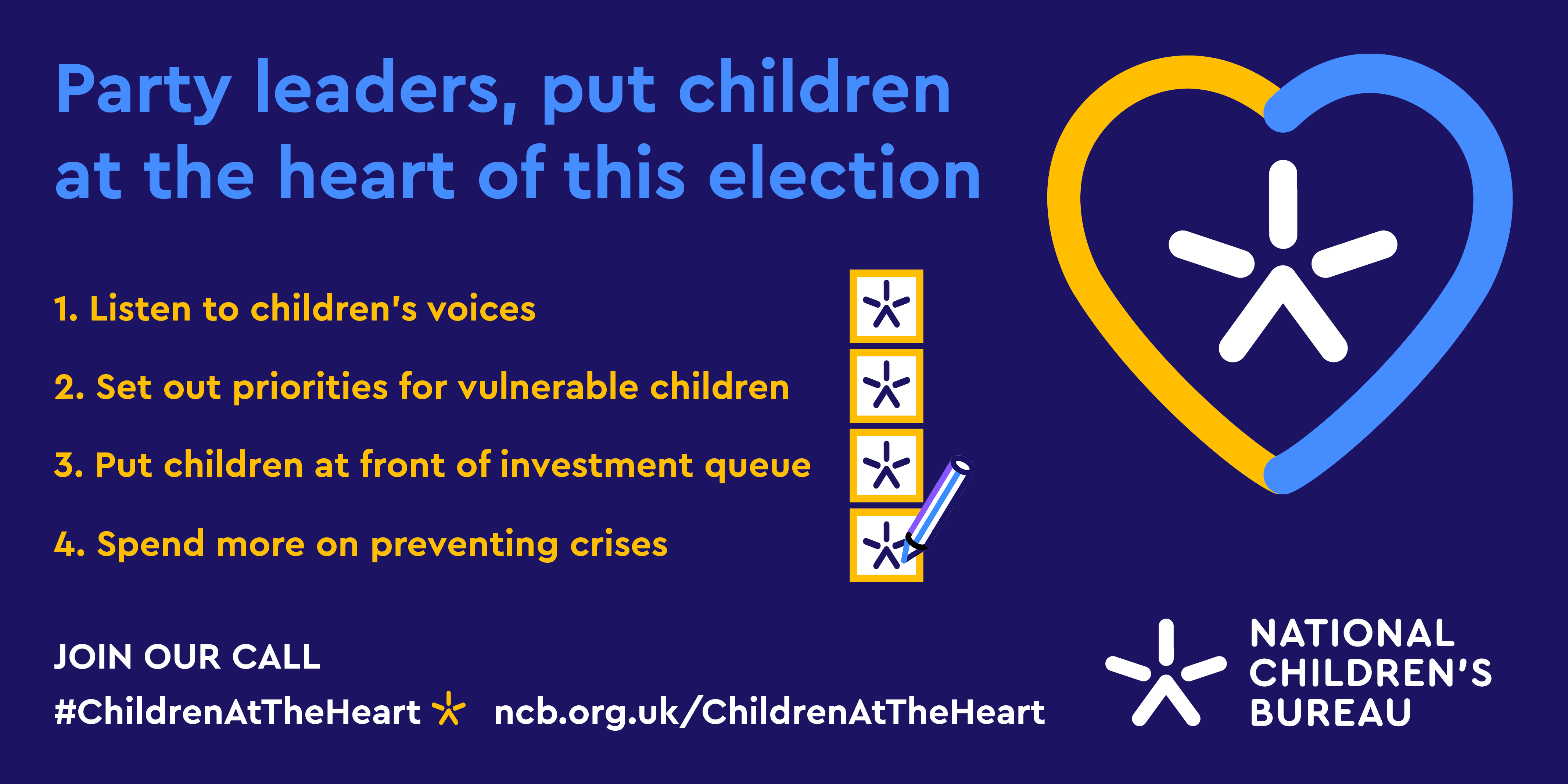
Just for Kids law is joining 140+ organisations in a call to all political parties to put children and young people at the heart of this General Election.
Our open letter calls on all political leaders to set out their solutions to the pressing issues facing children and young people, including child poverty, mental health, domestic abuse and serious youth violence.
You can show your support on social media using the hashtag #ChildrenAtTheHeart.
Children and young people are joining our call and raising their voices on social media, using the hashtag #IfIWerePM to share their priorities for the next Government.
As leaders of charities and organisations working with vulnerable children across the UK, we ask that you address the needs of our youngest citizens and set out how you will prioritise them in the next Parliament.
General elections are the moments when we debate and decide the nation’s future and there is no greater investment that we, as a society, and you, as politicians, can make for our future prosperity than ensuring every child gets the best start in life. Strengthening childhoods builds a healthier society and a stronger economy.
There are almost 14 million children in the UK but their voices are missing from the national conversation and far too little attention has been paid to their needs, particularly those of the most vulnerable. Instead, the debate on Brexit means the issues affecting children are being crowded out of the national debate.
We are asking each of you to put children at the heart of this election. We invite you to listen directly to the voices of children and commit to three actions to improve their outcomes:
- Set out your party’s priorities for vulnerable children. The number of children in the UK living in poverty has risen to 4.1 million. A child goes into care every 15 minutes. One in eight 5 to 19 year olds have at least one mental health condition. Your parties must set out how they will protect children from these and other challenges like online harm, serious youth violence and the criminal exploitation of children. These are urgent problems that can leave children scarred for a lifetime, with consequences for the whole of society.
- Put children at the front of the queue for investment. We know from our frontline experience that support from services and professionals can be crucial in helping children and families thrive, such as help for new parents to bond with their babies; support for pupils at risk of school exclusion; and child protection teams who intervene when children are in danger.
However, these services are increasingly facing a funding crisis, as the number of children needing support is continuing to rise – there has been a 17% increase in the number of children in care since 2010 - and the amount of money the Government provides to spend on children’s services has fallen. The Local Government Association estimates that the funding gap for children’s services will be £3.1 bn by 2024 and England’s Children’s Commissioner says £10bn is needed to ensure all disadvantaged children get a chance to thrive. - Re-balance spending. We’re spending more on the consequences of children ending up in crisis and less and less on preventing crisis in the first place. In the past decade, spending on early intervention services fell by 49% while spending on statutory, late intervention services rose by 12%.
Early help services like children’s centres are missing out on funding even though they play a crucial role in identifying children with developmental problems or families struggling at home. The next Government should ensure local authorities have the resources to run early intervention programmes which have been proven to work.
Only through an honest debate about how we respond to these challenges, and the urgency with which we do it, can this election help set us on a better path for all children.
This could be the most important General Election in a generation and the children we work with don’t have a vote - so they must have a voice.